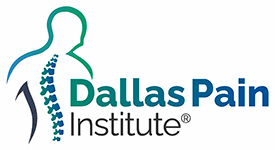Call for an appointment today! (903) 892-1999
Radiofrequency Ablation of Genicular Nerves of the Knee
Radiofrequency Ablation (RFA) is an innovative procedure that uses electrical currents to generate heat and destroy pain fibers in various areas, including facet joints, sacroiliac joints, or even the knee’s genicular nerves. Providing long-term relief, RFA is a more enduring solution than traditional blocks with local anesthetic or steroid injections.
General Pre-Injection Instructions
- Allergies: Notify our staff if you have allergies, especially to iodine.
- Fasting: Do NOT eat the morning of the procedure if sedation is required.
- Insulin Changes: Insulin-dependent diabetics receiving sedation may need to adjust insulin doses.
- Routine Medications: Continue taking high blood pressure and diabetic medications (e.g., Glucophage).
- Blood Thinners: If on Coumadin or similar medications, inform the staff for proper pre-procedure planning.
- Driving: Plan to have a driver accompany you home after the procedure.
What Happens During the Procedure?
- Preparation: The patient is positioned for optimal access to the treatment area, and the skin is cleaned with antibacterial soap.
- Local Anesthesia: A numbing agent is applied to a small skin area, causing brief stinging.
- X-Ray Guidance: A small needle is guided using x-ray to the specific nerve to be treated.
- Stimulation Test: The patient communicates sensations in the area to ensure proper needle positioning.
- Nerve Confirmation: The nerve is tested to prevent unwanted muscle stimulation.
- Ablation: The targeted area is numbed, and ablation is performed, followed by an injection of numbing medicine and steroid to minimize post-procedure pain (neuritis).
What Happens After the Procedure?
- Recovery Room: Patients are monitored in the recovery room after the procedure.
- Diet and Activity: No restrictions on food, liquids, or general activities, unless directed by the physician.
- Pain Increase: Temporary pain increase (2-3 days) is normal and doesn’t indicate a problem.
- Follow-Up: A follow-up appointment is scheduled to assess the response.
- Driving: Driving is discouraged on the day of the procedure.
Radiofrequency Ablation represents a breakthrough in pain management, targeting specific pain fibers for lasting relief. Following these instructions ensures a smooth procedure and recovery. If you have any questions or concerns, please don’t hesitate to reach out to our medical team.
ALL TREATMENTS
Caudal Epidural Steroid Injection
Cervical Epidural Steroid Injection
Inferior Hypogastric Nerve Block
Kyphoplasty for Vertebral Fractures
Lumbar Epidural Steroid Injections
Lumbar Sympathetic Plexus (Ganglion) Block
Minimally Invasive Lumbar Decompression (MILD Procedure) for Spinal Stenosis
Radiofrequency Ablation of Facet Joints
Radiofrequency Ablation of Genicular Nerves of the Knee
Spinal Cord Stimulation Implants
Superior Hypogastric Nerve Block
Superion InterSpinous Spacer for Spinal Stenosis
Transforaminal Epidural Steroid Injection or Selective Nerve Root Block
